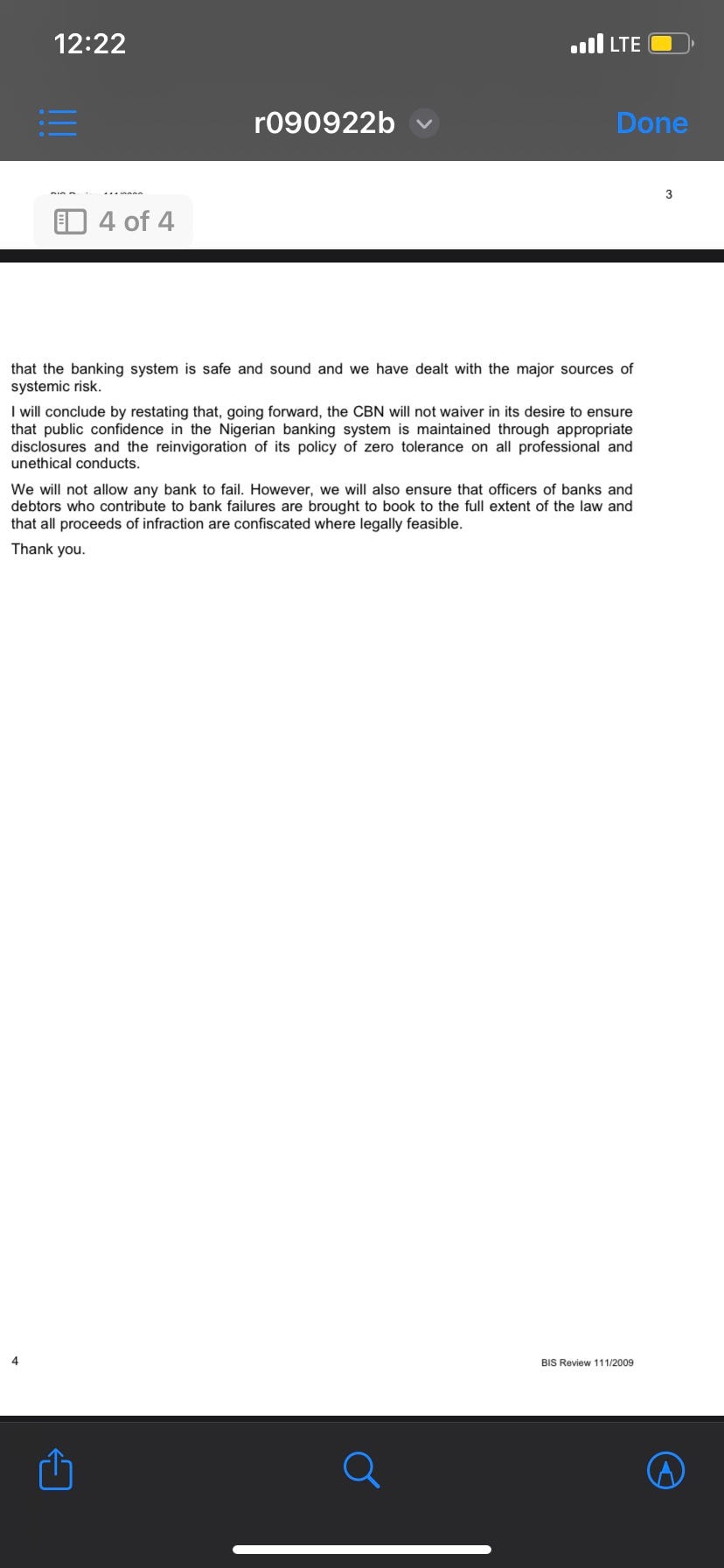What does the CBN Uniform Accounting Year for all Financial Institutions in Nigeria imply?
Growing up, I remember my Uncle telling me about how corrupt the banking sector is. And to validate this, the 2008 global financial crisis exposed the banking system which resulted to a global recession.
Precisely, I could remember my Uncle telling me of how banks window-dress their financial statements due to their varying financial year end. Bank A with a March year end may approach Bank B with a September year end for a loan in February at a rate far below or equivalent to NIBOR rate so as to make it books more robust and then repay Bank A immediately after its statutory Audit. This fraud continues YoY, yet, failure was inevitable.
In spite of the 1952 Banking Ordinance, the Nigerian banking sector has experienced a number of bank failures. The period of 1994–2006 also witnessed a wave of systemic distress culminating in another round of bank failures. Notwithstanding the heavy impact this ugly and recurring development has inflicted on this sector, the 2004 Banking Sector Reforms swept away 14 additional banks.
Kudos to Sanusi Lamido Sanusi (the CBN Governor 2009–2014) for his impact on the Nigerian banking sector. He issued a circular on the reclassification of non-performing loans (NPL) which seems to be “bad” in the financials of the banks.
Also in 2009, the CBN issued a circular BSD/DIR/GEN/CIR/VOL.2/004 dated June 18, 2009, that requires all banks and discount houses in Nigeria to adopt 31st December as a uniform accounting year-end from 2009 shall henceforth be applicable to OFIs. The policy is aimed at enhancing transparency and accountability in the financial reporting of commercial banks in Nigeria.
Prior to this policy, commercial banks in Nigeria had different financial year-ends, which made it difficult for regulators and investors to accurately compare their financial performance. With this new policy, all commercial banks in Nigeria are required to synchronize their financial year-ends, which will simplify financial reporting, improve transparency and make it easier for stakeholders to compare the financial performance of different banks.
The policy is expected to have a positive impact on the Nigerian banking industry as it will improve the quality of financial reporting and enhance the credibility of the financial statements of commercial banks. It will also make it easier for investors to make informed decisions and help to attract foreign investment into the Nigerian banking sector.
So far, this policy has helped Nigerian Banks to manage their portfolio prudently and reduce their exposure to unsystematic risk.
Attached is one of the address of Sanusi Lamido Sanusi on bank failures in Nigeria.




